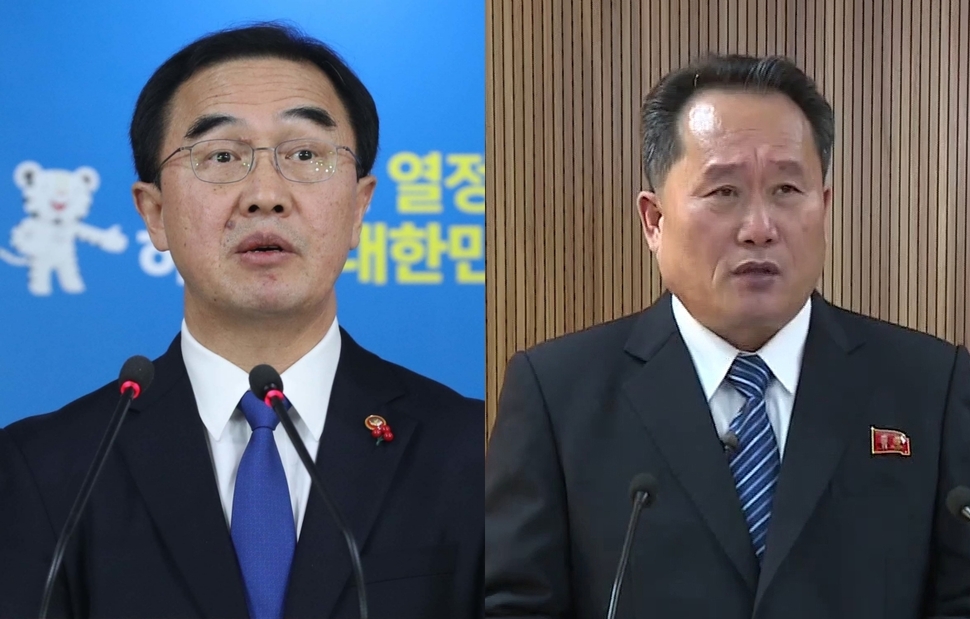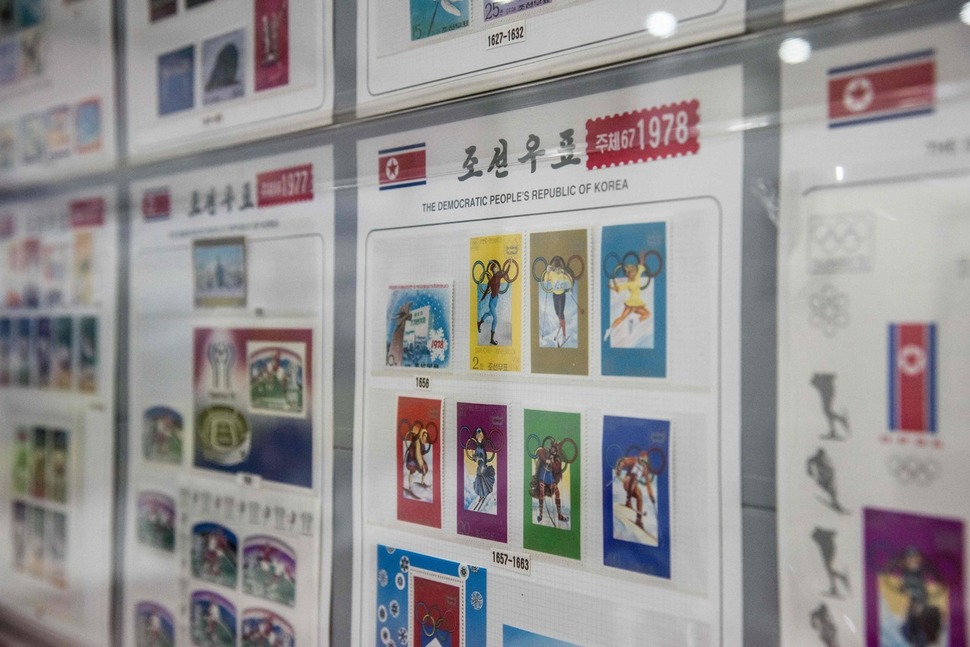 |
|
The two men who will lead high-level talks, South Korean Unification Minister Cho Myoung-gyon (left) and Ri Son-gwon, chair of North Korea’s Committee for the Peaceful Reunification of the Fatherland.
|
The first round of dialogue will focus on North Korean participation in the Pyeongchang Olympics
North and South Korea will soon be sitting down at the negotiating table for the first time in two years and one month. The talks have been made possible by the direct efforts of the leaders of the two sides. The question is whether this can go beyond ensuring the success of the Pyeongchang Winter Olympics and serve as a catalyst for bringing peace to the Korean Peninsula. One of the characteristics of the talks scheduled for Jan. 9 is that they were achieved through “indirect conservation” between South Korean President Moon Jae-in and North Korean leader Kim Jong-un. During his New Year’s address on Jan. 1, Kim described the Pyeongchang Olympics as a great event for the Korean nation and hinted that he would be willing to send a North Korean delegation to the Olympic Games and to participate in inter-Korean talks to make that a reality. Moon responded on Jan. 2 by expressing his “welcome and support” on Jan. 2 and by instructing the Unification Ministry and the Ministry of Culture, Sports and Tourism to make preparations. After that, South Korean Unification Minister Cho Myoung-gyon and Ri Son-gwon, chair of North Korea’s Committee for the Peaceful Reunification of the Fatherland, hurried to complete the arrangements for the talks on the authority of their respective leaders. The cable that North Korea sent through a phone call on Jan. 5 was signed by Ri and addressed to Cho. This means that the teams of negotiators at the high-level talks proposed by South Korea will be led by minister-level officials. The last meeting between North and South Korean officials of ministerial rank or higher occurred in Aug. 2015, when National Security Advisor Kim Kwan-jin and Unification Minister Hong Yong-pyo from South Korea and Korean People's Army General Political Bureau Chief Hwang Pyong-so and Korean Workers’ Party Central Committee Secretary Kim Yang-gon from North Korea met after South Korean soldiers were maimed by a landmine that blew up near the DMZ. In its cable, North Korea said that the agenda of the meeting would be matters related to improving inter-Korean relations, including North Korea’s participation in the Pyeongchang Winter Olympics. The scope and extent of improving inter-Korean relations will apparently be determined during the talks themselves. “The discussion will basically focus on the question of North Korea participating in the Pyeongchang Olympics. Since North and South Korea have not sat down together for a long time and since these will be high-level deliberations, I also think there could be a discussion of matters of mutual interest,” Cho told reporters on Jan. 5. The Blue House appears to be cautious about setting its hopes too high. “The question of participating in the Olympics will probably have to be wrapped up before we can discuss improving inter-Korean relations. We are open to the possibility of discussing other issues, but it’s still too early to say how this will play out,” said a senior official at the Blue House.
 |
|
Stamps at a store in Pyongyang commemorate North Korean participation in past Winter Olympics. (AFP/Yonhap News)
|







